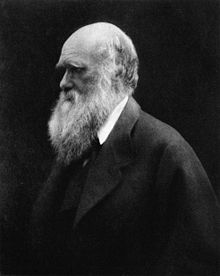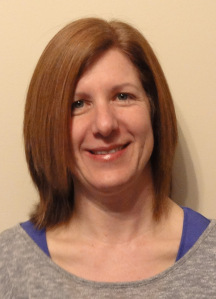Atlantic
Meyer
A Mr Meyer, thought to be an archaeologist, was the source of a claim in some newspapers in 1885 that he had discovered stone tablets on the island of Zapatera in Lake Nicaragua which had a map of the world depicting a large island in the Atlantic that Mr. Meyer identified as Atlantis(a). Not the most credible story that I’ve read. I note that this was written just a few years after Ignatius Donnelly published his ground-breaking book.
(a) Mr. Meyer’s Atlantis map (1885) – Atlantisforschung.de (atlantisforschung-de.translate.goog)
Heylyn, Peter
Peter Heylyn (1599-1662) was a cleric with an interest in history and geography. He was a prolific writer, including Cosmographie [1260/1273], in which he endeavoured to record every detail of the known world of 1652. Thorwald C. Franke notes [1255.285] that Heylyn believed that a submerged Atlantis existed in the Atlantic.
Drankenbring, William F.
William F. Drankenbring (1941-2017) was the founder of the Triumph Prophetic Ministries which he humbly described as “the ‘only’ remnant body in the World, of Jesus Christ.”
Leaving that aside, Drankenbring also wrote a paper on Atlantis, which he placed in the Atlantic, adding his own biblical twist to the story by suggesting that it had been peopled by early ‘Israelites’, established around 1706 BC and destroyed in 1492 BC!
De Novo y Colson, Pedro
 Pedro de Novo y Colson (1846-1931) was a Spanish naval officer, who was strongly influenced by the Atlantis theories of Paul Gaffarel and while offering nothing new, he also situated Plato’s island in the Atlantic with the archipelagos there as its remnants.
Pedro de Novo y Colson (1846-1931) was a Spanish naval officer, who was strongly influenced by the Atlantis theories of Paul Gaffarel and while offering nothing new, he also situated Plato’s island in the Atlantic with the archipelagos there as its remnants.
His views were published in Ultima Teoria Sobre La Atlántida [1674], which is also available online(a).
(a) http://bdh-rd.bne.es/viewer.vm?id=0000112847&page=1
Darwin, Charles
Charles Darwin (1809-1882) is reported in Wikipedia (a) to have been “dismissive of the ideas that others had put forward of sunken continents like Atlantis.” This opinion is dated to around 1855.
Edward Forbes was one of the first, in 1846 [1471], to hypothesise the existence of a continent in the Atlantic linking Ireland, the Azores and the Iberian Peninsula, which was popularly called ‘Atlantis’. Charles Darwin described his idea as ‘speculative’.
This would appear to conflict with Marco Ciardi, who claimed that Darwin had accepted the existence of Atlantis, I presume later, but did so “under the influence of, among others, the botanist J. D. Hooker” and “reverted to the hypothesis of a lost continent to which the Atlantic islands testified since they constituted the tips of its highest mountains.” This information was cited by Pierre Vidal-Naquet in The Atlantis Story [580.xxii].
Ignatius Donnelly sent a copy of his Atlantis to Darwin, but received a less than enthusiastic response(b).
(a) https://en.wikipedia.org/wiki/Development_of_Darwin%27s_theory
(b) https://www.jasoncolavito.com/blog/friday-odds-and-ends-on-aliens-atlantis-and-more
André-François Boureau-Deslandes
André-François Boureau-Deslandes (1689-1757) was born in Pondicherry, a former French territory in India. He was a philosopher, a scientist and a sometimes controversial writer. Thorwald C. Franke notes [1255.325] that contrary to some reports, Boureau-Deslandes favoured the Atlantic as the home of Atlantis in his 1737 work, Histoire critique de la philosophie [1604].
Cavallaro, Luciana *
Luciana Cavallaro is an Australian secondary school teacher of Italian descent with a fascination for ancient history  and mythology. In 2015, she published two papers(a)(b) on her website in which she explored the current Atlantis theories. At the end of part one, she wrote that “I do think Santorini is the site of Atlantis” but then goes on to suggest that Malta or Cadiz are also possibilities.
and mythology. In 2015, she published two papers(a)(b) on her website in which she explored the current Atlantis theories. At the end of part one, she wrote that “I do think Santorini is the site of Atlantis” but then goes on to suggest that Malta or Cadiz are also possibilities.
Part two begins with a new conclusion, namely that the Atlantic was the home of Plato’s lost island! She wanders about some more before finishing inconclusively. For me the only redeeming detail was her reference to the fact that Plato located Atlantis in a ‘sea’ rather than an ‘ocean’, a point that is often overlooked.
(a) The Elusive Location of Atlantis Part 1 | Eternal Atlantis (archive.org) *
(B) The Elusive Location of Atlantis Part 2 | Eternal Atlantis (archive.org) *
Schwamm, Daniel
 Daniel Schwamm is a German commentator who has advocated the idea that a landmass between Europe and America in the Atlantic is the location of Atlantis(a).
Daniel Schwamm is a German commentator who has advocated the idea that a landmass between Europe and America in the Atlantic is the location of Atlantis(a).
His 2012 paper, which is taken from a 1995 book is unconvincing, involving as it does the Bermuda Triangle, the migration of Azorean lobsters and the Nasca geoglyphs.
(a) https://www.daniel-schwamm.de/index.php?pg=texte/atlantis.htm
Hershiser, David
David Hershiser is the author of Beyond the Pillars of Hercules: Atlantis and Tyrus in Plato’s Writings, Biblical Verses, and the Works of Helena Blavatsky, Edgar Cayce, and Ruth Montgomery[1016]. In it he adopts the idea of J. D. Brady that Ezekiel’s Tyrus was not the Phoenician city of Tyre, but it can be identified as Atlantis. In a 2015 article in Atlantis Rising magazine(a) Hershiser discusses the core of this theory. Unlike Brady, who proposed that Tyrus/Atlantis was to be identified with Troy, Hershiser places his Tyrus/Atlantis in the Atlantic just outside the Strait of Gibraltar.
*(a) See: Archive 3395*
Castro, Domingos Leite de
 Domingos Leite de Castro (1846-1916) was a Portuguese commentator who identified the Atlantic seaboard of Europe as Atlantean. The following is a poor machine translation of his original 1912 Portuguese article[1480][1481];
Domingos Leite de Castro (1846-1916) was a Portuguese commentator who identified the Atlantic seaboard of Europe as Atlantean. The following is a poor machine translation of his original 1912 Portuguese article[1480][1481];
[“A Atlântida era apenas o litoral atlântico da Europa desde o Atlas até à Irlanda; “Atlantis was only the Atlantic coast of Europe from the Atlas to Ireland; O reino de Atlas, um The kingdom of Atlas, a dos dez reinos da Atlântida, foi o primeiro, o mais importante do grupo, e o que lhe deu o nome; of the ten kingdoms of Atlantis, was the first, the most important of the group, and what gave it the name; Os the outros eram: Cádis, Cartara ( Cartaya ?), o Sacrum (compreendendo S. Vicente e Santa Maria), os others were: Cadiz, Cartara ( Cartaya ?), The Sacrum (comprising S. Vicente and Santa Maria), the Saefes e Cempses ao sul da Arrábida, Oliusippo , Brigância, Grã-Bretanha e Irlanda; Saefes and Cempses to the south of the Arrábida, Oliusippo , Brigance, Great Britain and Ireland; A Grande Ilha da The Big Island of Atlântida não era nada mais que a Grã-Bretanha, isto é, um dos dez povos que ocupavam esse litoral; Atlantis was nothing more than Great Britain, that is to say, one of the ten peoples who occupied this coast; As Dez Ilhas Cassitérides eram muito provavelmente o mesmo que os Dez Reinos da Atlântida, The Ten Cassitérides Islands were very probably the same as the Ten Realms of Atlantis considered the tin entire market.”
